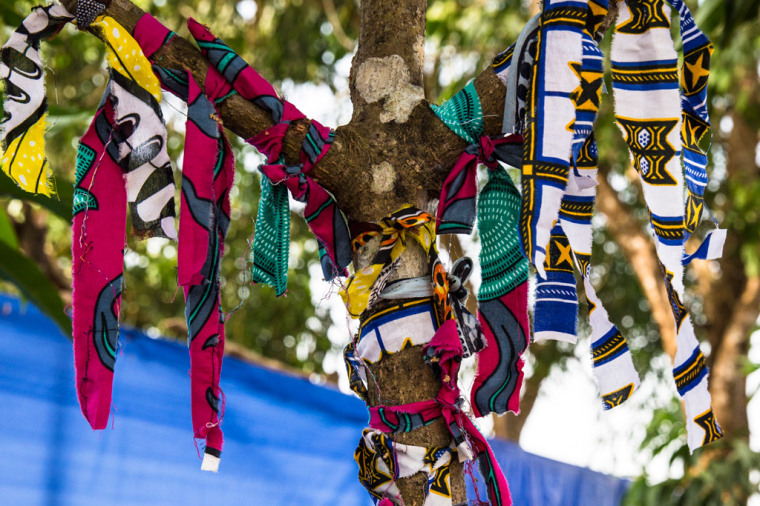2-year-old boy playing in bat-infested tree 'ground zero' patient for Ebola epidemic

WEST AFRICA (Christian Examiner) -- Two-year-old Emile Ouamouno died a year ago in the remote village of Meliandou, in southern Guinea. The toddler was the first known victim of this Ebola epidemic that wasn't discovered until March. His mother, grandmother and 3-year-old sister died days later.
Authorities now believe that it was Emile's playing in a bat-infested hollow tree about 50 meters from his house is what caused the toddler to be infected with the Ebola virus. He died Dec. 28, 2013.
As of Dec. 31, 2014, according to the World Health Organization, the virus had spread to more than 20,000 people in Guinea, Liberia, and Sierra Leone, with more than 7,800 deaths in those three nations.
In the same report, WHO said 382 of the 678 health care workers known to have been infected with Ebola have died.
"Infections in Liberia's Eastern border region have spiked recently, as tight-knit cross-border communities spread the disease across the often porous border," the United Nations Development Program reported in a press release, adding that 49 new Ebola cases had been recorded in the border country, including 12 in the last four days.
"The official border crossings ... are all patrolled," said Kamil Kamaluddeen, UNDP director for Liberia. "However, there are a number of places where it's possible to cross without detection."
WHO on Dec. 31 said the number of Ebola cases was fluctuating in Guinea and overall decreasing in Liberia, although that nation had seen more new cases this week than last.
Peter Piot, director of the Long School of Hygience and Tropical Medicine, and part of a team that discovered Ebola in 1978, said progress was being made in trying to stop the virus from spreading.
"This will be an epidemic with a very long tail, and a bumpy tail," Piot told the BBC Dec. 31. "We need to be ready for a long effort, a sustained effort [for] probably the rest of 2015."
Potential Ebola drugs exist, yet there is hardly a scrap of evidence that any of them work, wrote James Gallagher, a BBC health editor. Two drugs have entered clinical trials in West Africa, but results are not expected until February.
Fruit bats were determined by scientists to be the source for the Ebola virus in West Africa, but talk of culling them from the ecosystem has been quashed.
"We need to find ways to live together with the wildlife," said Fabian Leendertz M.D., from the Robert Koch Institute in Germany, a government entity. "These bats catch insects and pests, such as mosquitoes. ... Killing them would not be a solution. You would have more malaria."
Compounding the situation with Ebola in West Africa, many Christian and other groups have had to suspend their activities or redirect them to fighting the epidemic. Planting Partners is one example. It had spent six years in Sierra Leone, developing farms and using profits from the farms to fund local school, according to an article on Medscape.com.
"The project had just become self-financing for the first time when the outbreak was detected in March," Reuters noted. "After that, things fell apart. Planting Partners was forced to withdraw its expatriate staff in June, and the following month it closed its five primary schools where nearly 1,000 pupils had studied. It has also shut down its food processing factory."